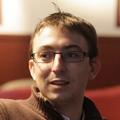Cited By
View all- Topfer MAbdullah MKrulis MBures THnetynka P(2022)ML-DEECo: a Machine-Learning-Enabled Framework for Self-organizing Components2022 IEEE International Conference on Autonomic Computing and Self-Organizing Systems Companion (ACSOS-C)10.1109/ACSOSC56246.2022.00033(66-69)Online publication date: Sep-2022



